7 Novels by Forrest Reid (1875-1947)
Requirements: MOBI / ePUB reader, 6.2 Mb (all books)
Overview: Forrest Reid (1875-1947) is unequaled among English-language writers in his novels of boyhood and adolescence. Forrest Reid was an Irish novelist, literary critic and translator. He was, along with Hugh Walpole and J.M. Barrie, a leading pre-war British novelist of boyhood. He is still acclaimed as the greatest of Ulster novelists.
In later life, Reid disowned his first two novels, The Kingdom of Twilight (1904) and The Garden God (1905). The latter novel risked controversy with its portrayal of romantic friendship between two boys; Reid dedicated it to his literary idol Henry James, who was outraged and never spoke to Reid again.
The best of Reid’s works came in maturity, beginning with Uncle Stephen (1931), which, with The Retreat (1936) and Young Tom (1944), made up the Tom Barber trilogy, regarded by many as his masterpiece; the final book in the trilogy won the James Tait Black Memorial Prize as the best novel published in 1944. Reid’s other mature work includes Brian Westby (1934), inspired by Reid’s friendship with nineteen-year-old Stephen Gilbert, who also went on to become a novelist, and Peter Waring (1937) and Denis Bracknel (1947), rewritten versions of Following Darkness and The Bracknels, respectively. Reid died in 1947, critically well-regarded, but never having achieved the widespread popular recognition he deserved.
Genre: Literary Fiction
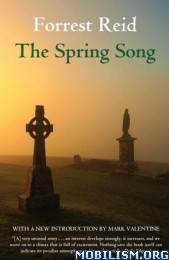
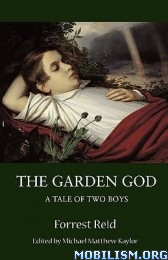
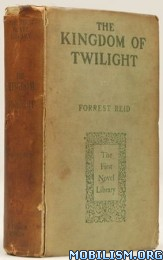
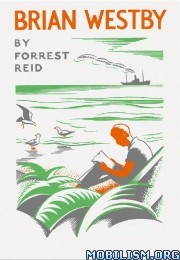
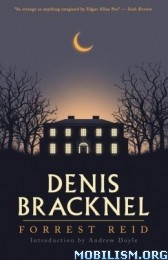
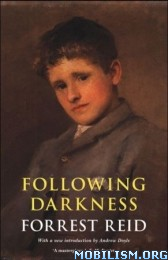
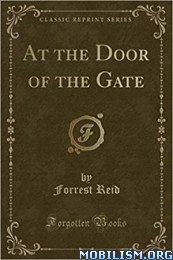
1. The Spring Song (1916)
Thirteen-year-old Grif Weston and his siblings, Barbara, Ann, Jim, Edward, and Edward's friend Palmer Dorset, travel to their grandfather's home in rural Ireland, where they hope to pass an eventful summer. Unexpected dangers and adventures lurk, as the children must solve the kidnapping of their beloved dog Pouncer and thwart a burglary attempt on Grandpapa's house. Yet there is another danger, far more sinister, involving Billy Tremaine, a local boy who died at age fourteen in a tragedy no one wants to talk about.
When Grif hears a mysterious figure singing an old tune called "The Spring Song," old Mr. Bradley tells him that it's Billy's ghost, trying to lure Grif into joining him in the world of the dead; shortly afterwards Grif falls ill with an inexplicable sickness. But Palmer Dorset, an avid reader of Sherlock Holmes tales, is determined to solve these mysteries, and he'll risk every danger to find the truth behind Mr. Bradley's ghastly stories and Grif's unexplainable illness. . . .
Forrest Reid (1875-1947) is unequaled among English-language writers in his novels of boyhood and adolescence. In The Spring Song (1916), he weaves a classic boys' adventure tale with a chilling ghost story in the vein of Henry James's The Turn of the Screw. This edition, the first since the novel's original publication, is newly typeset from the original edition and features a new introduction by Mark Valentine.
2. The Garden God (1905)
Fifteen year old Graham Iddesleigh dreams of a past life, where he frolicked in a garden with a young Greek god. However, his dreams threaten to come to an abrupt end when his father decides to send him away to school. But what is Graham's surprise when he meets a fellow schoolboy, Harold Brocklehurst, who is the very image of the Greek god of his dreams!
Graham falls deeply in love with his new friend, and the two boys spend an unforgettable summer together -- until a heartbreaking tragedy occurs, a tragedy that will change Graham's life forever.
"The Garden God" was first published in 1905, in the wake of the Oscar Wilde trial and other scandals, and risked controversy with its undercurrents of pederastic desire. Forrest Reid dedicated the novel to his idol, Henry James, who was outraged and never spoke to Reid again. This first ever scholarly edition of the novel includes a new introduction and notes by Michael Matthew Kaylor, who dismisses the traditional view of Reid as merely a provincial novelist and argues for his inclusion among the major Uranian writers such as Pater, Wilde, and Frederick Rolfe.
3. The Kingdom of Twilight (1904)
the central character is Willie Trevellyan, whom we meet as a 16-year-old passionately and romantically in love with his older cousin Eva, an intelligent and stoic young woman who serves the narrative as a backboard for Willie (and Reid) to bounce musings on Nature, Love, Class, Religion, Self and anything else that occurred to him against; he's self-indulgent in the way of adolescents, and in the way of Edwardian adolescents, completely ignorant of pretty much anything that matters.
Willie's other friend is Nick, with whom he is also in love, passionately if not romantically, and who is undoubtedly in love with him.
Later, Willie meets and is manipulated by an older woman who claims her child to be his, and who deserts them both within a year of the child's birth, Willie having done the honourable thing by marrying her. Reid's evocation of the child, a boy named Prosper, is luminous.
4. Brian Westby (1934)
A chance meeting in 1931 between fifty-six-year-old Forrest Reid and nineteen-year-old Stephen Gilbert was a pivotal event in the lives of both men. For Reid, it was love at first sight, and his young muse was the inspiration for a string of late-career literary triumphs that culminated in the James Tait Black Prize for Young Tom as the best novel of 1944. For Gilbert, his friendship with Reid helped launch his own writing career, which saw him publish five excellent, though now neglected, novels between 1943 and 1968. In "Brian Westby" (1934), arguably his masterpiece, Reid immortalized their meeting, recasting their relationship as father and son. In "Brian Westby," Martin Linton, an ageing novelist wondering whether he has anything left to live for, travels to the Irish seaside for his health. There, he meets Brian, the teenage son he never knew he had, and finds his passion for life reawakened as he tries to win the boy's confidence and affection. But their burgeoning relationship is threatened by Linton's ex-wife Stella, who believes him to be an immoral influence, and in an unforgettable climax Brian will be forced to choose between his love for his newfound father and his loyalty to the only parent he has ever known.
5. Denis Bracknel (1947)
At the end of his life, Forrest Reid (1875-1947) extensively revised his novel The Bracknels (1911), which had been acclaimed by critics and whose admirers included E.M. Forster and D.H. Lawrence; the result was the posthumously published Denis Bracknel (1947), and it remains one of his finest achievements. A story in the tradition of Henry James’s The Turn of the Screw and with a slow-building dread reminiscent of the works of Sheridan Le Fanu, Reid’s novel opens with the arrival of young tutor Hubert Rusk, just down from Oxford, at the home of the well-to-do Bracknel family. Though the entire family is odd, none of them is stranger than Rusk’s pupil, fifteen-year-old Denis, a highly imaginative, unworldly boy who is attuned to the occult and performs bizarre rituals by moonlight. As Rusk befriends Denis and gains his trust, he gradually learns the startling and horrific truth behind the boy’s behaviour and will have to struggle to save him from a terrible fate . . .
6. Following Darkness (1912)
When Following Darkness first appeared in 1912, critics did not know what to make of it. Sentimental novels of childhood and adolescence were popular in the Victorian and Edwardian eras, but here was something completely new in English fiction, a book that explored a teenager's thoughts and emotions with unflinching honesty. One leading critic denounced the novel's protagonist Peter Waring as a 'subject for the pathologist rather than the novelist,' an 'evil' character who 'unutterably disgusts', and the book's allusions to Peter's sexual awakening and his rejection of Christ disturbed contemporary readers.
Following Darkness is the story of sixteen-year-old Peter's conflict with his staunchly religious father, whose religion and values Peter rejects with contempt, his burgeoning friendship with Owen Gill, and his growing passion for Katherine Dale. With keen psychological insight, Reid creates in Peter a complex and fascinating character: morally ambiguous, deeply flawed, snobbish, conceited and selfish, yet ultimately sympathetic. Acclaimed as a masterpiece by E.M. Forster and a possible influence on Joyce's A Portrait of the Artist as a Young Man (1916), Following Darkness was unlike any novel that had preceded it, and it remains one of Forrest Reid's most interesting works. This first-ever republication of the novel includes a new introduction by Andrew Doyle.
7. At The Door Of The Gate (1915)
At the Door of the Gate (1915) centres on Richard Seawright, ‘a youthful Greek divinity’ in a family of ne’er-do-wells at Blenheim Gardens in Belfast, who is forced to work at a tea-merchants, and forms a relationship with Rose Jackson, whom he is forced to marry, ending in her suicide after the birth of a son and the end of the marriage, after which the son dies of pneumonia due to his paternal uncle Martin’s carelessness, leading to a fight in which Richard pushes his brother over a cliff to his death.
Download Instructions:
The Spring Song
https://www19.zippyshare.com/v/Z84p7shF/file.html
Mirror:
http://ulozto.net/xAqASUZw/the-spring-song-forrest-reid-rar
The Garden God
http://www3.zippyshare.com/v/lakjBiTL/file.html
Mirror:
https://mega.nz/#!LJZjmIzb!ElPB66WfN3xcuDDt3ulZLV5Nt1oPr7U-aRlWDTbHg0Q
Novels 3 - 5 ("The Kingdom of Twilight", "Brian Westby ", and "Denis Bracknel")
(Closed Filehost) http://tusfiles.com/m5pg6pbeig41
Mirrors:
https://www104.zippyshare.com/v/z655Y6iF/file.html
https://ulozto.net/!9qlULntqfzJq/forest-reid-kingdom-westby-bracknel-rar
Following Darkness
(Closed Filehost) http://tusfiles.com/oqvcmg8bx2dz
Mirrors:
https://www69.zippyshare.com/v/mhEu3mWi/file.html
https://uloz.to/!hFUAOsCQaLPZ/following ... ncourt-rar
At The Door of The Gate
(Closed Filehost) http://tusfiles.com/bmyl1i8ttg07
Mirror:
https://www38.zippyshare.com/v/Udjfgh57/file.html
https://mega.nz/#!I4AkxQbB!rXHhalJm5KbG_wqfVoGvJLSfPDGEmhib1iyVQFBQIVo
Edit: Added "The Kingdom of Twilight", "Brian Westby ", and "Denis Bracknel" 26 April 2019
Edit: Added "Following Darkness" 11 May 2019
Edit: Added "At The Door of the Gate" 30 May 2019
eBooks created from photographed or scanned page images and converted to eBook using ABBYYFineReader and Sigil.
Requirements: MOBI / ePUB reader, 6.2 Mb (all books)
Overview: Forrest Reid (1875-1947) is unequaled among English-language writers in his novels of boyhood and adolescence. Forrest Reid was an Irish novelist, literary critic and translator. He was, along with Hugh Walpole and J.M. Barrie, a leading pre-war British novelist of boyhood. He is still acclaimed as the greatest of Ulster novelists.
In later life, Reid disowned his first two novels, The Kingdom of Twilight (1904) and The Garden God (1905). The latter novel risked controversy with its portrayal of romantic friendship between two boys; Reid dedicated it to his literary idol Henry James, who was outraged and never spoke to Reid again.
The best of Reid’s works came in maturity, beginning with Uncle Stephen (1931), which, with The Retreat (1936) and Young Tom (1944), made up the Tom Barber trilogy, regarded by many as his masterpiece; the final book in the trilogy won the James Tait Black Memorial Prize as the best novel published in 1944. Reid’s other mature work includes Brian Westby (1934), inspired by Reid’s friendship with nineteen-year-old Stephen Gilbert, who also went on to become a novelist, and Peter Waring (1937) and Denis Bracknel (1947), rewritten versions of Following Darkness and The Bracknels, respectively. Reid died in 1947, critically well-regarded, but never having achieved the widespread popular recognition he deserved.
Genre: Literary Fiction







1. The Spring Song (1916)
Thirteen-year-old Grif Weston and his siblings, Barbara, Ann, Jim, Edward, and Edward's friend Palmer Dorset, travel to their grandfather's home in rural Ireland, where they hope to pass an eventful summer. Unexpected dangers and adventures lurk, as the children must solve the kidnapping of their beloved dog Pouncer and thwart a burglary attempt on Grandpapa's house. Yet there is another danger, far more sinister, involving Billy Tremaine, a local boy who died at age fourteen in a tragedy no one wants to talk about.
When Grif hears a mysterious figure singing an old tune called "The Spring Song," old Mr. Bradley tells him that it's Billy's ghost, trying to lure Grif into joining him in the world of the dead; shortly afterwards Grif falls ill with an inexplicable sickness. But Palmer Dorset, an avid reader of Sherlock Holmes tales, is determined to solve these mysteries, and he'll risk every danger to find the truth behind Mr. Bradley's ghastly stories and Grif's unexplainable illness. . . .
Forrest Reid (1875-1947) is unequaled among English-language writers in his novels of boyhood and adolescence. In The Spring Song (1916), he weaves a classic boys' adventure tale with a chilling ghost story in the vein of Henry James's The Turn of the Screw. This edition, the first since the novel's original publication, is newly typeset from the original edition and features a new introduction by Mark Valentine.
2. The Garden God (1905)
Fifteen year old Graham Iddesleigh dreams of a past life, where he frolicked in a garden with a young Greek god. However, his dreams threaten to come to an abrupt end when his father decides to send him away to school. But what is Graham's surprise when he meets a fellow schoolboy, Harold Brocklehurst, who is the very image of the Greek god of his dreams!
Graham falls deeply in love with his new friend, and the two boys spend an unforgettable summer together -- until a heartbreaking tragedy occurs, a tragedy that will change Graham's life forever.
"The Garden God" was first published in 1905, in the wake of the Oscar Wilde trial and other scandals, and risked controversy with its undercurrents of pederastic desire. Forrest Reid dedicated the novel to his idol, Henry James, who was outraged and never spoke to Reid again. This first ever scholarly edition of the novel includes a new introduction and notes by Michael Matthew Kaylor, who dismisses the traditional view of Reid as merely a provincial novelist and argues for his inclusion among the major Uranian writers such as Pater, Wilde, and Frederick Rolfe.
3. The Kingdom of Twilight (1904)
the central character is Willie Trevellyan, whom we meet as a 16-year-old passionately and romantically in love with his older cousin Eva, an intelligent and stoic young woman who serves the narrative as a backboard for Willie (and Reid) to bounce musings on Nature, Love, Class, Religion, Self and anything else that occurred to him against; he's self-indulgent in the way of adolescents, and in the way of Edwardian adolescents, completely ignorant of pretty much anything that matters.
Willie's other friend is Nick, with whom he is also in love, passionately if not romantically, and who is undoubtedly in love with him.
Later, Willie meets and is manipulated by an older woman who claims her child to be his, and who deserts them both within a year of the child's birth, Willie having done the honourable thing by marrying her. Reid's evocation of the child, a boy named Prosper, is luminous.
4. Brian Westby (1934)
A chance meeting in 1931 between fifty-six-year-old Forrest Reid and nineteen-year-old Stephen Gilbert was a pivotal event in the lives of both men. For Reid, it was love at first sight, and his young muse was the inspiration for a string of late-career literary triumphs that culminated in the James Tait Black Prize for Young Tom as the best novel of 1944. For Gilbert, his friendship with Reid helped launch his own writing career, which saw him publish five excellent, though now neglected, novels between 1943 and 1968. In "Brian Westby" (1934), arguably his masterpiece, Reid immortalized their meeting, recasting their relationship as father and son. In "Brian Westby," Martin Linton, an ageing novelist wondering whether he has anything left to live for, travels to the Irish seaside for his health. There, he meets Brian, the teenage son he never knew he had, and finds his passion for life reawakened as he tries to win the boy's confidence and affection. But their burgeoning relationship is threatened by Linton's ex-wife Stella, who believes him to be an immoral influence, and in an unforgettable climax Brian will be forced to choose between his love for his newfound father and his loyalty to the only parent he has ever known.
5. Denis Bracknel (1947)
At the end of his life, Forrest Reid (1875-1947) extensively revised his novel The Bracknels (1911), which had been acclaimed by critics and whose admirers included E.M. Forster and D.H. Lawrence; the result was the posthumously published Denis Bracknel (1947), and it remains one of his finest achievements. A story in the tradition of Henry James’s The Turn of the Screw and with a slow-building dread reminiscent of the works of Sheridan Le Fanu, Reid’s novel opens with the arrival of young tutor Hubert Rusk, just down from Oxford, at the home of the well-to-do Bracknel family. Though the entire family is odd, none of them is stranger than Rusk’s pupil, fifteen-year-old Denis, a highly imaginative, unworldly boy who is attuned to the occult and performs bizarre rituals by moonlight. As Rusk befriends Denis and gains his trust, he gradually learns the startling and horrific truth behind the boy’s behaviour and will have to struggle to save him from a terrible fate . . .
6. Following Darkness (1912)
When Following Darkness first appeared in 1912, critics did not know what to make of it. Sentimental novels of childhood and adolescence were popular in the Victorian and Edwardian eras, but here was something completely new in English fiction, a book that explored a teenager's thoughts and emotions with unflinching honesty. One leading critic denounced the novel's protagonist Peter Waring as a 'subject for the pathologist rather than the novelist,' an 'evil' character who 'unutterably disgusts', and the book's allusions to Peter's sexual awakening and his rejection of Christ disturbed contemporary readers.
Following Darkness is the story of sixteen-year-old Peter's conflict with his staunchly religious father, whose religion and values Peter rejects with contempt, his burgeoning friendship with Owen Gill, and his growing passion for Katherine Dale. With keen psychological insight, Reid creates in Peter a complex and fascinating character: morally ambiguous, deeply flawed, snobbish, conceited and selfish, yet ultimately sympathetic. Acclaimed as a masterpiece by E.M. Forster and a possible influence on Joyce's A Portrait of the Artist as a Young Man (1916), Following Darkness was unlike any novel that had preceded it, and it remains one of Forrest Reid's most interesting works. This first-ever republication of the novel includes a new introduction by Andrew Doyle.
7. At The Door Of The Gate (1915)
At the Door of the Gate (1915) centres on Richard Seawright, ‘a youthful Greek divinity’ in a family of ne’er-do-wells at Blenheim Gardens in Belfast, who is forced to work at a tea-merchants, and forms a relationship with Rose Jackson, whom he is forced to marry, ending in her suicide after the birth of a son and the end of the marriage, after which the son dies of pneumonia due to his paternal uncle Martin’s carelessness, leading to a fight in which Richard pushes his brother over a cliff to his death.
Download Instructions:
The Spring Song
https://www19.zippyshare.com/v/Z84p7shF/file.html
Mirror:
http://ulozto.net/xAqASUZw/the-spring-song-forrest-reid-rar
The Garden God
http://www3.zippyshare.com/v/lakjBiTL/file.html
Mirror:
https://mega.nz/#!LJZjmIzb!ElPB66WfN3xcuDDt3ulZLV5Nt1oPr7U-aRlWDTbHg0Q
Novels 3 - 5 ("The Kingdom of Twilight", "Brian Westby ", and "Denis Bracknel")
(Closed Filehost) http://tusfiles.com/m5pg6pbeig41
Mirrors:
https://www104.zippyshare.com/v/z655Y6iF/file.html
https://ulozto.net/!9qlULntqfzJq/forest-reid-kingdom-westby-bracknel-rar
Following Darkness
(Closed Filehost) http://tusfiles.com/oqvcmg8bx2dz
Mirrors:
https://www69.zippyshare.com/v/mhEu3mWi/file.html
https://uloz.to/!hFUAOsCQaLPZ/following ... ncourt-rar
At The Door of The Gate
(Closed Filehost) http://tusfiles.com/bmyl1i8ttg07
Mirror:
https://www38.zippyshare.com/v/Udjfgh57/file.html
https://mega.nz/#!I4AkxQbB!rXHhalJm5KbG_wqfVoGvJLSfPDGEmhib1iyVQFBQIVo
Edit: Added "The Kingdom of Twilight", "Brian Westby ", and "Denis Bracknel" 26 April 2019
Edit: Added "Following Darkness" 11 May 2019
Edit: Added "At The Door of the Gate" 30 May 2019
eBooks created from photographed or scanned page images and converted to eBook using ABBYYFineReader and Sigil.
Please PM me if links are dead, and I will do my best to refresh them.